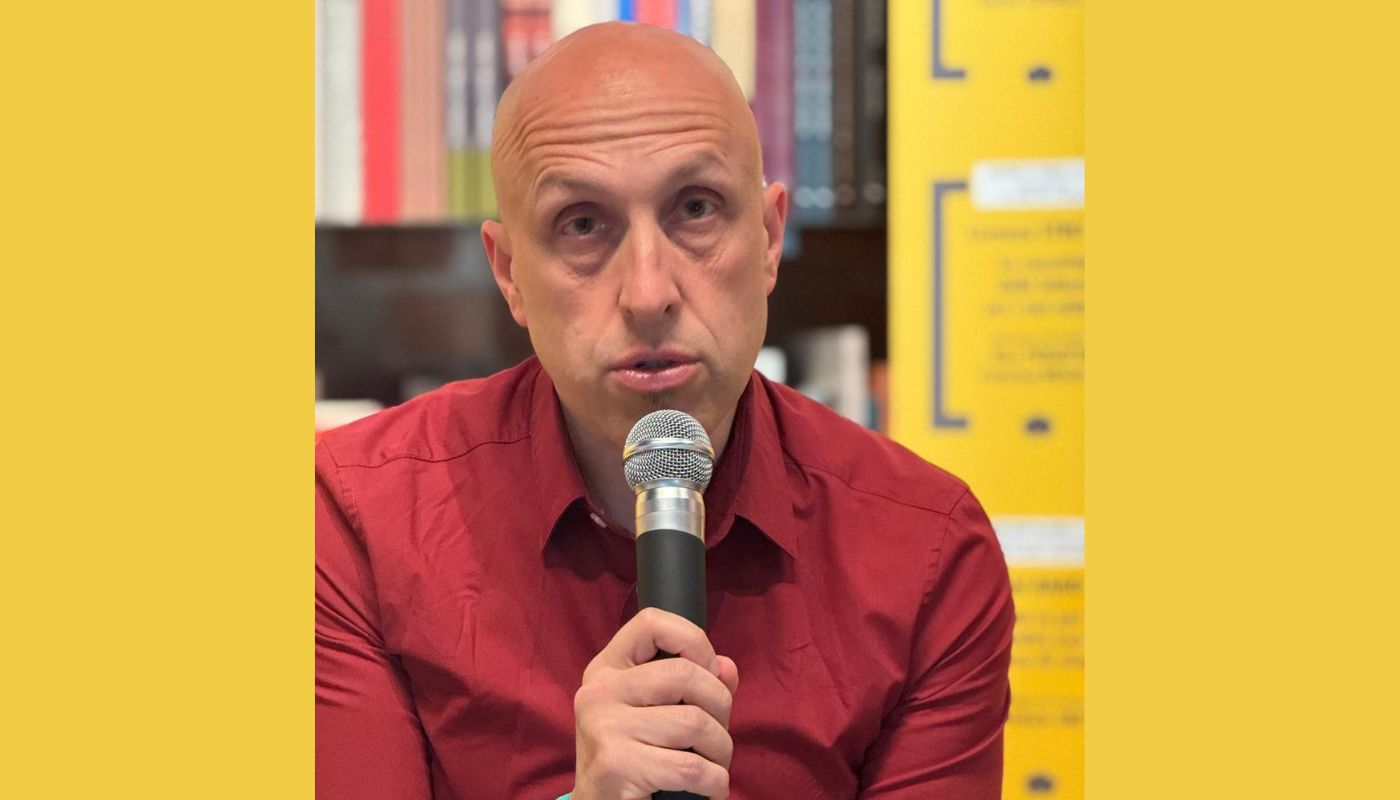
POETRY AFTER THE END OF THE ERA OF THE WITNESS
by PATRIZIA DUGHERO
The physiognomy of “ISONZO SOČA” is enriched by a new section dedicated to poetry: a space open to texts and books published or unpublished in the places of the two Gorizias, inhabited and described by important authors of the Italian-Slovenian literary scene. A container useful for the dissemination and exchange of texts, multilingual and multifaceted, to get to the bottom of this search for osmotic relationships, thanks to the construction of bridges, including literary ones.
In this first case, the choice fell on a single author, David Bandelj, from Gorizia, of Slovenian mother tongue, poet and musician, translator, born in Gorizia, where he lives, after obtaining a doctorate in comparative literature at the University of Ljubljana. David Bandelj published several collections of poems in the Slovenian language until 2020 when he saw the light of day Enajst let in pol tišine for the publishing houses Slovenska matica and Mladika, followed by Ronin in 2022. Since 2008 he has been working on essays and historical-literary monographs , while his poems are published in the main Slovenian literary magazines and in translation (Italian, English, Macedonian, Czech, Polish). A well-known and recognized poet (numerous local and international literary festivals in which he also participated as a mentor and commissioner, especially those organized by the JSKD – Javni sklad Republike Slovenije za kulturne dejavnosti) receiving several awards. Although he did not self-translate his own compositions, he translated into Slovenian authors both Italian and Friulian, such as Tommaso Campanella, Dario Bellezza, Celso Macor, as well as native Australian poets and some Latin classics. Teacher of literary subjects at the Gregorčič Lyceum, in Gorizia, he directs the mixed youth choir Emil Komel and the Komorni orkester Nova of Nova Gorica. It is precisely in the role of teacher that he makes his first journeys of Memory, from which he returns each time with stones of silence as heavy as boulders and begins to forge himself as a witness to tragic sites such as Auschwitz. The end of the Witness Era has produced a real generational change which, in the absence of survivors, today sees as protagonists those third-generation Jews, born between the 60s and 80s, children of those who lived through the fascist dictatorship and the Nazi occupation, but also a regeneration on the testimonies because, when the direct witnesses have disappeared, surely we will also and above all be left to tell the works, the museums, architecture and memorials that will convey that past with the language of contemporaneity. The translation of the collection which in Italian becomes Eleven and a half years of silence for Qudulibri, 2025, it is accomplished with an act that not only contains the intrinsic value of a “conversation between a few retranslated by others”, but as a real necessary and essential passing of the baton, especially after the events that took place on October 7, 2024.
The translator, Aleksandra Devetak, accompanied the silences, full of grave mystery, between one verse and another, with a constant confrontation with the author. Here lies the substantial difference with the “accumulation of broken images” of so much contemporary poetry, in this work made with the history of culture and which, on its critical analysis, transforms emotion into a polyphony, composed not only of basso continuo but of the commitment to overturn the assumption that Adorno enunciated in ’49: “writing a poem after Auschwitz is an act of barbarism”.
Due to its dramatic uniqueness, the Shoah represents a space of memory that, in a convulsive and contradictory way, provides the figure of how much the strategies for the use of emotions have changed today compared to the past: the many and varied artistic expressions on the Shoah have often led to make people reflect visitors, generating Responsible criticism and new witnesses.
We want to think that the atrocious stories consumed in those places carry a germ for a way out of the horrors, convinced that literature will be judged, as well as history. One is often called upon to justify one’s own poetics and a considerable dose of writing planning accompanies this work by Bandelj that we include in the issue of the magazine, departing only apparently from the theme The city: the author extraordinarily restores a community of closeness between those present and absent. David, instead of justifications, shows us three compositions that are as lapidary as they are melodic, for a fair degree of recognition, in the breaking of the dispossession of self, an act that poetry can and must perform in the “citadel” of transformers, rather than visitors, and we thank him for this.
La lingua originale di questo articolo è l'Italiano.

